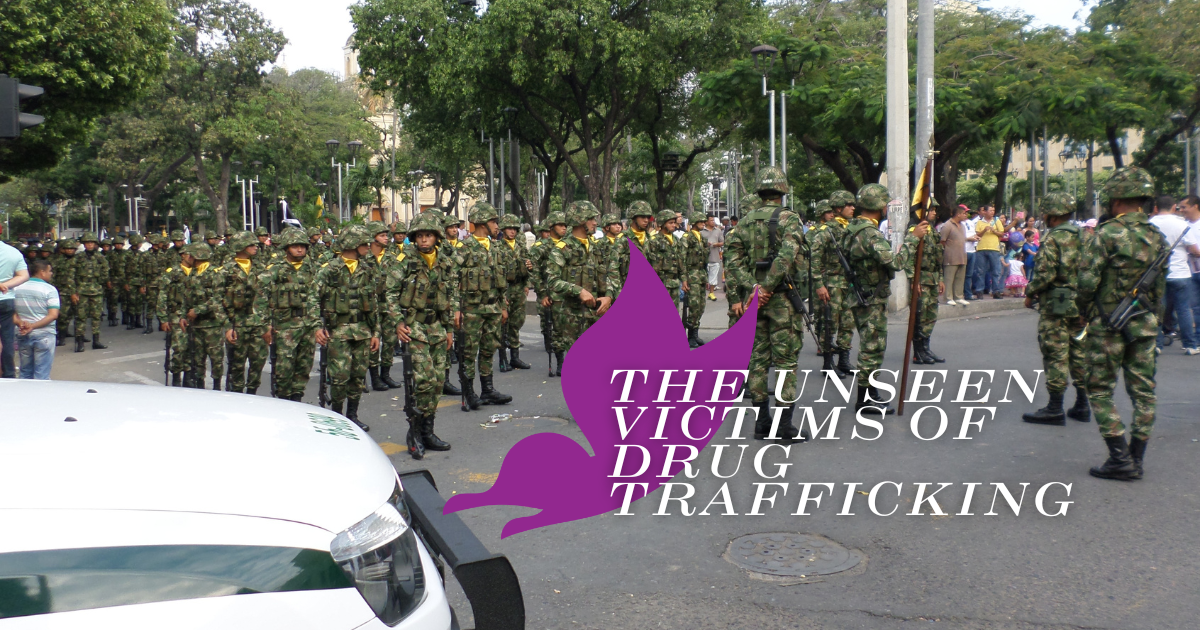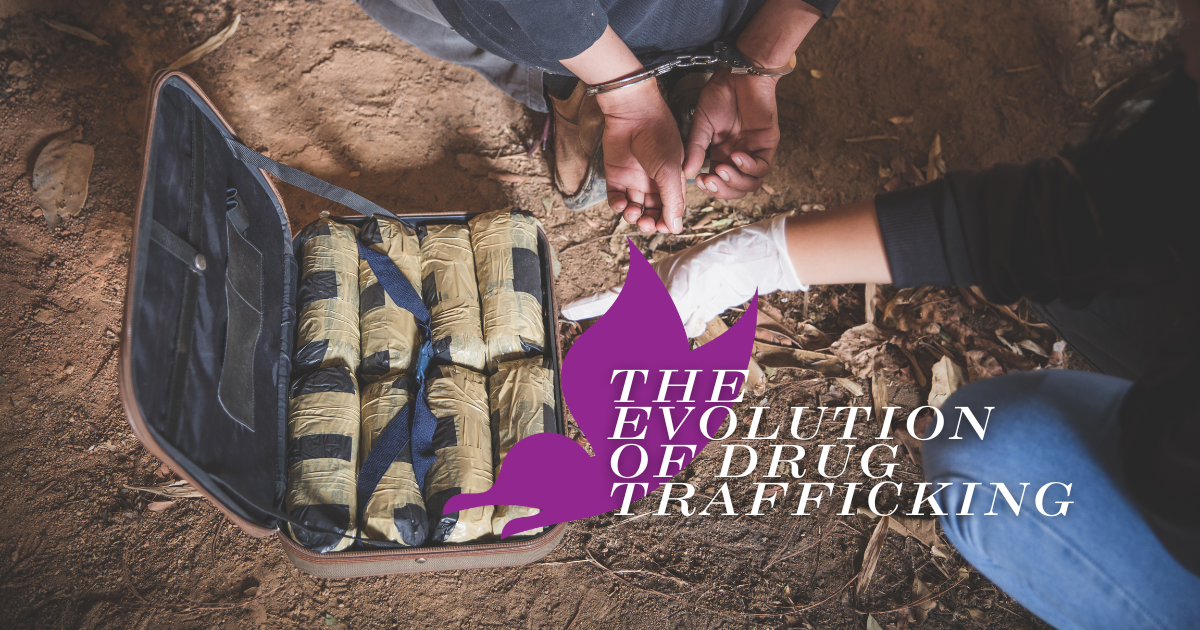The Senate recently passed by 99-1 a piece of bipartisan legislation that is meant to address the opioid epidemic at a federal level. The Opioid Crisis Response Act of 2018 was the result of more than 70 proposals and will set aside an approximate $7.9 billion for the CDC, Department of Health and Human Services, and other agencies. From 2017 to 2018, the nation lost an estimated 71,000 people to drug-related overdose, marking a 5.1% increase over the previous year. The act comprises multiple provisions including some to stop illegal drugs from crossing the border, establish comprehensive recovery centers, and support research for training. The White House has praised this bill as a significant step forward for the government in combating the drug and opioid crisis in America. The next step is to get the bill finished and in front of the president. Here are the provisions and the various departments that the legislation will affect.
National Institutes of Health
The National Institutes of Health is part of the U.S. Department of Health and Human Services. It is the nation’s foremost medical research agency and provides essential research to spur discoveries, improve health, and save lives. To increase the flexibility that the National Institutes of Health have to address the opioid crisis, this bill will approve high-impact, cutting-edge projects dedicated to finding new, non-addictive painkillers, and allows the NIH to use other transactional authorities they possess to research and respond to public health threats.
Food and Drug Administration (FDA)
The Food and Drug Administration is a federal agency of the U.S. Department of Health and Human Services. It is responsible for protecting and promoting public health through the control and supervision of food safety, tobacco products, dietary supplements, and prescription and pharmaceutical drugs. This Opioid Crisis Response Act outlines several initiatives for the FDA to combat the opioid crisis.
Opioid Packaging
This provision of the bill encourages responsible prescribing behavior and limits over prescribing. It does this by clarifying the FDA’s authority to require drug manufacturers to package certain drugs, including opioids, such as those that allow a set of treatment duration – for example, a blister pack, which is for patients who only need a 3 to 7 day supply. In other words, the FDA can now make more explicit packaging guidelines to limit the quantity and instruct users to consume the correct amount of opioids.
Safe Disposal Systems
This portion clarifies the FDA’s authority to require manufacturers of pharmaceutical medication to provide patients with a simple and reliable method of disposing of leftover drugs, included in the packaging. Giant pharmacies such as Walmart and CVS have already started providing safe disposal programs to patients, but little data exists to show the efficacy of these programs in reducing abuse rates. Safe disposal as part of medication packaging could be a more convenient and simple solution.
Improve FDA and (CBP) Coordination at the Border
This provision is intended to help improve the ability to detect and seize illegal drugs at the border, ensuring that both the FDA and CBP (Customs Border Protection) have the detection technology and testing equipment to quickly and efficiently share information.
Introduce New Non-Addictive and Non-Opioid Painkillers
To help medical product manufacturers to navigate the pathways of FDA approval. Utilizing processes such as Breakthrough Designation and Accelerated Approval, the FDA can swiftly introduce novel non-opioid pain treatments. This also clarifies the FDA’s role in protecting the public by asking for new guidelines on the risks and benefits of drugs for being abused. This provision is in response to past FDA approval measures that designated opioids as being relatively harmless. It also asks for new guidelines from the FDA on “pain endpoints,” which are markers used to measure patient pain and prescribe treatment. This will hopefully expedite the process of medical manufacturers to design clinical trials for innovative, non-addictive treatment methods.
Substance Abuse and Mental Health Services Administration
SAMHSA is an agency within the U.S. Department of Health and Human Services that leads public health efforts to advance the behavioral health of the nation. Since 1992, SAMHSA’s mission has been to reduce the impact of substance abuse and mental illness on America’s communities.
Cures Grant Changes
To help focus federal funds on states and tribes that have been particularly impacted by the opioid epidemic, this provision updates the funding formula authorized in the 21st Century Cures Act to account for the number of overdose deaths in each state as a factor for determining funding. This allows the funds to be used until they run out rather than requiring the states to spend them within the fiscal year. This will hopefully enable states that have been more impacted by the crisis to recoup some of the losses and reverse the damage.
Comprehensive Opioid Recovery Centers Grants
To help provide the full continuum of treatment for patients in areas that were hit hardest by the opioid crisis, this provision authorizes a grant program for entities to establish and operate a comprehensive opioid recovery center while requiring centers to serve as a resource for the community.
Recovery Housing Best Practices
To best help those recovering from opioid addiction in the long term, this provision would require the U.S. Department of Health and Human Services to issue standard operating procedures, best practices, and guidelines for entities operating recovery housing facilities. Sober living homes are places where individuals can stay in a drug and alcohol-free environment following their graduation from rehab. However, fraudulent sober living homes will work with outpatient programs and offer free rent to their tenants in exchange for billing their insurance. Some residents continue to use substances while in a sober living house because the landlord would prefer to keep their income coming in.
Opioid Prescription Limits
To examine the impact of federal and state laws for regulating the dosage and prescribing limits for opioid medication, this provision would require the Secretary of the U.S. Department of Health and Human Services to issue a report on these laws, including information about the impact on overdose rates, diversion practices, and individuals for whom opioids are medically appropriate.
First Responder Training
To support first responders to treat overdose cases involving opioids such as fentanyl adequately, this provision expands an existing grant program that was initially created under the Comprehensive Addiction and Recovery Act. This program was designed to allow first responders to administer the life-saving drug naloxone, among other drugs, to revive potential overdose victims. By expanding this program, more first responders will become trained in how to use the medication properly.
Youth Prevention and Recovery Initiative
This portion of the bill is explicitly dedicated to ensuring that the Department of Health and Human Services works with both SAMHSA and the Secretary of Education to develop and distribute best practices and issue grants for the prevention, treatment of, and recovery from substance use disorders. This provision will hopefully help prevent the abuse and misuse of opioids in children, adolescents, and young adults.
Centers for Disease Control and Prevention (CDC)
The Centers for Disease Control and Prevention is the federal agency tasked with conducting and supporting health promotion, prevention, and preparedness activities in the United States. Their mission is to conduct critical science and provide health information that protects our nation against expensive and dangerous health threats, as well as responding to them when they arise.
Prevention for States, Localities, and Tribes
This provision establishes more funding for the CDC to allocate to individual states and tribes. It is meant to enhance existing evidence-based prevention activities and will award grant money for governments to carry out activities such as Prescription Drug Monitoring Programs, innovative projects, and conducting research.
Controlled Substance Data Collection
For the CDC to more rapidly collect, asses, and respond to the developing opioid epidemic, this provision will provide support to states, localities, and tribes in the collection, analysis, and distribution of controlled substance overdose data. By shedding more light on the spread of this epidemic, the nation will be more prepared to address it using evidence-based practices.
Public and Provider Education
In order to advance awareness surrounding the risk of misuse for opioid medication, this program is intended to distribute information to providers and the public, as well as provide support through prescribing guidelines. With closer access between census information providers and the CDC, we can more accurately get a picture of the spread of this epidemic.
Neonatal Abstinence Syndrome Data Collection.
One of the most harmful aspects of the opioid crisis is the effect it is having on youth. Neonatal Abstinence Syndrome (NAS) is a collection of symptoms that newborns experience when they have been exposed to drug use while in the womb. These symptoms include high pitched crying and violent shakes attributable to the withdrawals they experience upon being born. The medical costs for infants afflicted with this syndrome are more than ten times higher than the average newborn. The number of newborns with NAS is rising consistently and is expected to surpass 1,000 in 2018. This provision will support data collection and research efforts for outcomes associated with prenatal opioid use.
Infections Associated with Injection Drug Use
To prevent and respond to infections that are commonly associated with intravenously injecting substances, such as viral hepatitis and HIV, this program will help support state and federal efforts to collect data on such infections as well as identify and assist those who are at an increased risk of contracting these infections.
Supports for Families Impacted by the Crisis
The Senate has also approved a number of initiatives intended to help those impacted by the crisis to get back on their feet through more than just abuse prevention and treatment. The psychological trauma and blows to productivity can be difficult obstacles to overcome on the path to recovery. Here are the programs intended to address more fully the nation’s recovery.
Interagency Task Force
In order to help identify, prevent, and address the impact of trauma on children and youth, specifically as it relates to substance use disorders, this provision creates a task force that will establish best practices for working the children of families dealing with trauma. No single type of trauma affects everyone. Multiple causes of trauma can cause different reactions in different people, and the recovery process will always take a different path. Sometimes trauma is a one-time event that creates lasting impacts on the brain of the victim, while other times trauma is repeated exposure to stressful situations and experiences. With the dedication of an entire task force, we can better prepare to address the complexity of trauma.
Pilot Program on Delivery of Trauma-Informed Support Practices
This provision extends from the prior and will create a grant aimed to help increased student support services while integrating mental health care within the school. This program will hopefully help prevent and mitigate the effects of trauma on children and youth.
Plans of Safe Care Implementation Grants
To assist the states in implementing safe care plans for infants exposed to substance use, this series of grants will help facilitate collaboration among the agencies responsible for state technical assistance programs. These grants build upon and enhance provisions first included in the Comprehensive Addiction and Recovery Act.
Grants Addressing Economic and Workforce Impacts of the Opioid Crisis
These grants will target workforce boards and local community organizations that have been affected by the opioid crisis, specifically targeting workforce shortages for substance abuse and the mental health treatment workforce, facilitating the alignment of job training and treatment services.
Drug Enforcement Administration (DEA)
In July of 1973, Nixon authorized the creation of the DEA, the Drug Enforcement Agency, to enforce the Controlled Substances Act. The DEA is intended to be the single focal point for coordinating federal drug enforcement efforts between the State, local authorities, and foreign police forces. All aspects of regulatory compliance, as well as criminal provisions for unlawful drug possession, are administered through the DEA.
Regulations for Telemedicine
This provision clarifies the DEA’s authority to develop regulations surrounding prescription guidelines for telemedicine. The DEA hopes to improve access to telemedicine so that under-served areas can receive the aid they need, but it needs to do so in a way that mitigates the risk of diversion and abuse.
Medication-Assisted Treatment
In order to improve access to medication-assisted treatment, this provision solidifies the ability for nurse practitioners and physician assistants to prescribe MAT. Congress initially granted this ability from 2016 through 2021, and research indicates that expanding this policy could wind up costing over $450 million over ten years.
In Conclusion
While this piece of legislation has flown through the House and Senate, it still remains to be seen whether the president will sign off on the final version of this bill. It contains many common sense solutions for the crisis, but the funding required to carry it out will undoubtedly remain a point of contention as it becomes enacted. At Landmark Recovery, we applaud the efforts of lawmakers to draft legislation that addresses the opioid and drug epidemic for the true danger it poses.

Choose Recovery Over Addiction
We're here 24/7 to help you get the care you need to live life on your terms, without drugs or alcohol. Talk to our recovery specialists today and learn about our integrated treatment programs.




